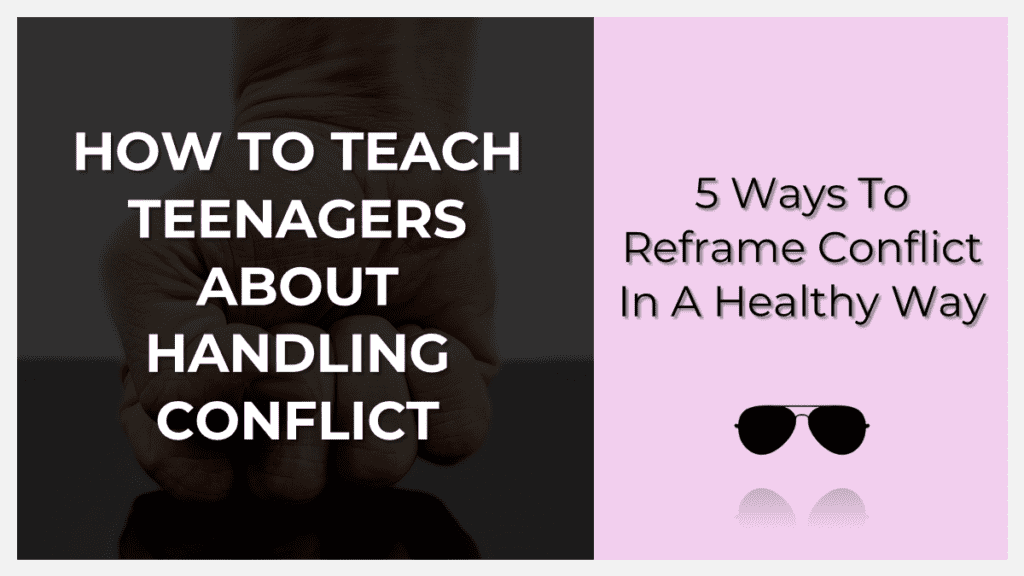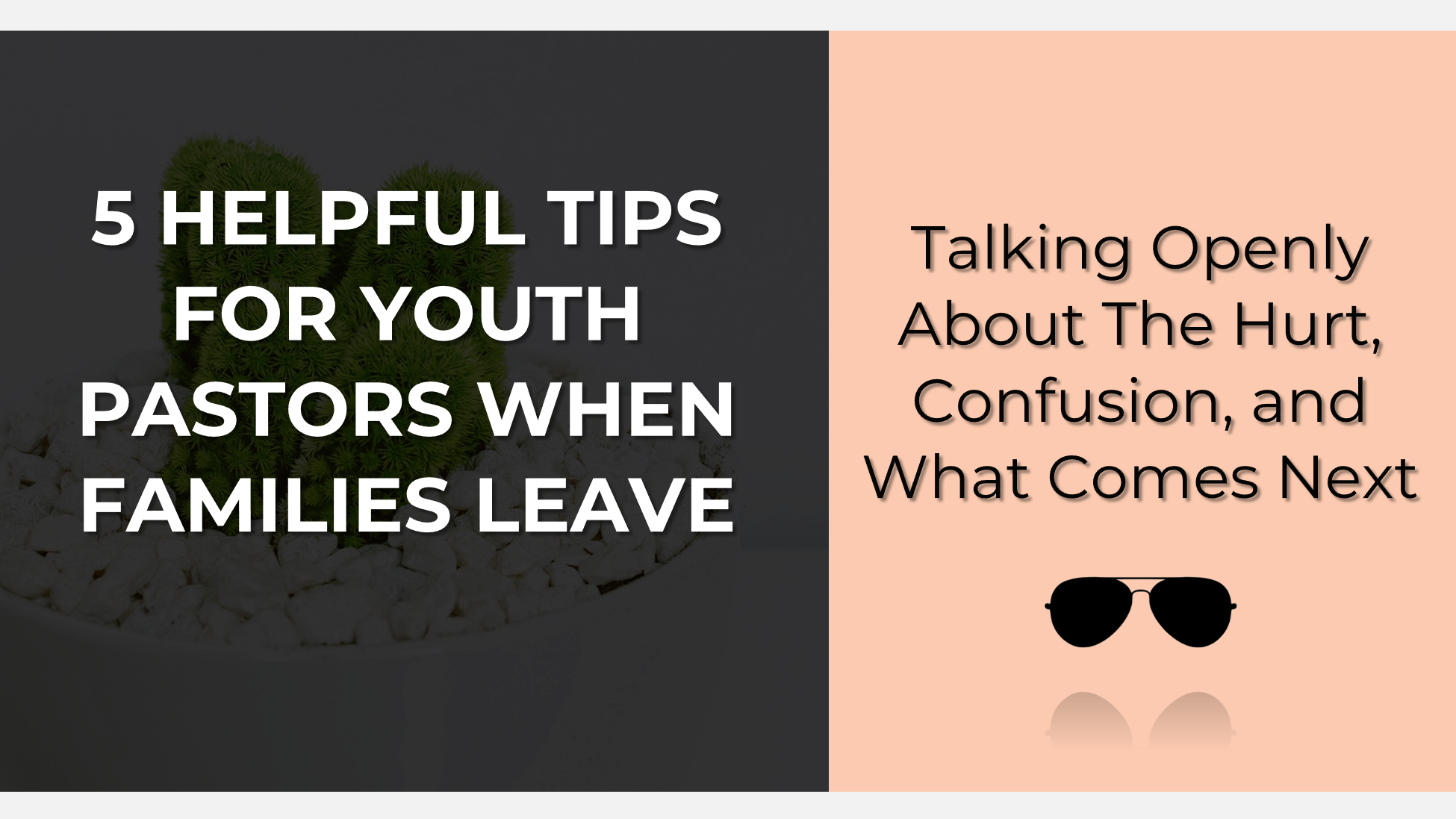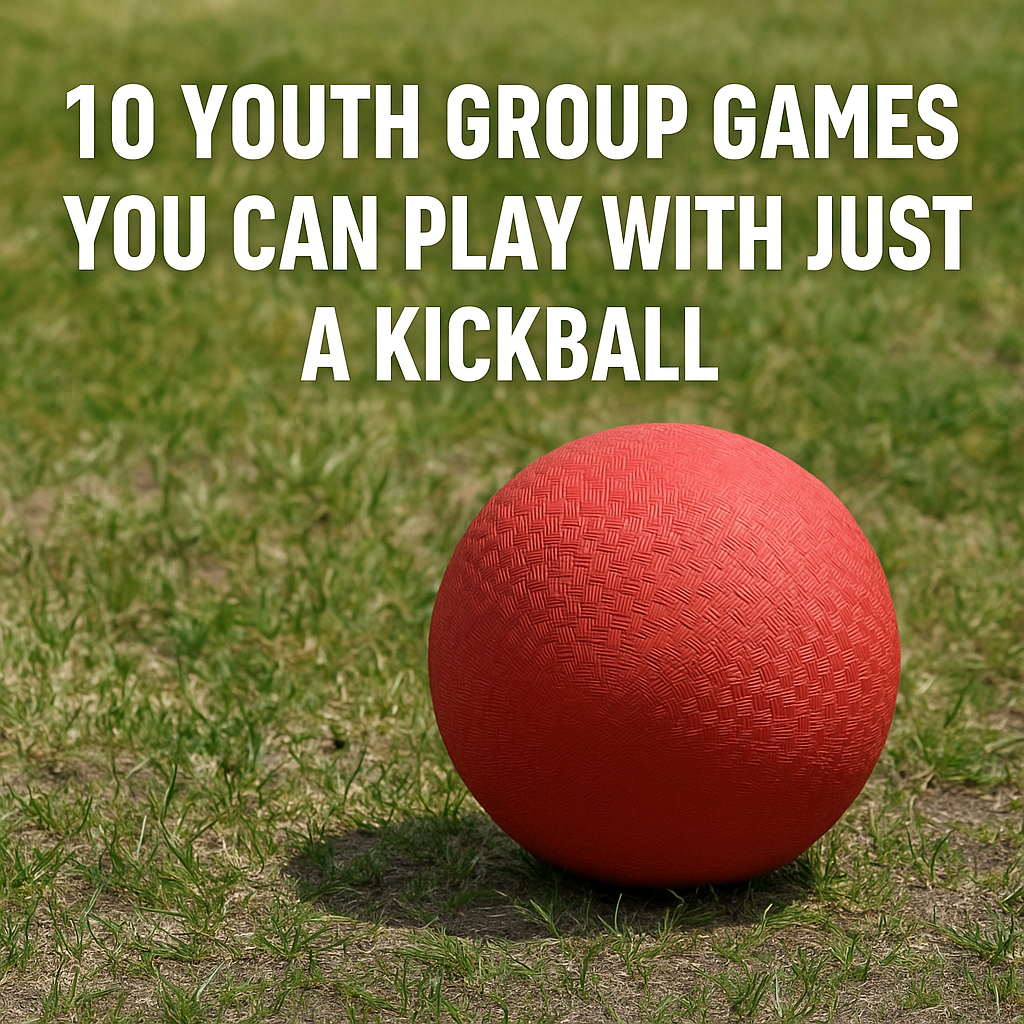
The 4 Best Youth Ministry Resources for 2026
A new year always brings new faces, fresh energy, and—let’s be honest—a little bit of chaos in youth ministry. New

Students face conflict every day. A friend stabs them in the back. Teammates won’t pass them the ball. A parent doesn’t understand where they’re coming from. A classmate posts something offensive online. And if we’re honest, many students handle conflict poorly.
They ghost people instead of resolving issues.
Students explode in anger.
They hold grudges instead of seeking peace.
So how do we help students approach conflict differently? Here’s how to teach teenagers about handling conflict biblically—without avoiding hard conversations or losing their witness.
But before we jump in, here’s our best youth ministry series on conflict.
Many students think “conflict = bad”—but conflict isn’t actually the problem. The problem is how we respond to it.
Some students avoid conflict completely. (“I just won’t say anything.”)
Some students attack. (“I’ll win this argument no matter what.”)
Some students hold onto bitterness. (“I’ll never forgive them.”)
But Scripture calls us to handle conflict in a way that honors God and builds people up.
Ask students:
“What’s your natural reaction to conflict—do you avoid it, escalate it, or shut down?”
“How have you seen conflict handled well? How have you seen it handled badly?”
They don’t have to fear conflict—but they do need to handle it wisely.
It’s so easy for students to respond in anger. Someone insults them? Clap back. Someone ignores them? Shut them out. Someone disagrees with them? Call them out publicly. But anger rarely leads to resolution—it just deepens the divide.
How to Help Students Handle Anger in Conflict:
Pause before reacting. If emotions are high, take a breath before responding.
Ask: “Is this worth fighting over?” Not every disagreement needs to become a battle.
Keep the goal in mind. The goal of conflict isn’t winning—it’s understanding.
This is perhaps the greatest thing we can teach teenagers about handling conflict. Not every conflict requires a fight—sometimes, wisdom means stepping back.
Most students don’t listen to understand—they listen to respond. They’re already thinking about their counterpoint before the other person finishes speaking. But active listening changes everything.
How to Teach Students to Listen Well in Conflict:
Don’t interrupt. Let the other person finish.
Ask clarifying questions. “Can you help me understand where you’re coming from?”
Repeat back what you heard. “So what I hear you saying is…”
When students actually listen, they realize many conflicts are just misunderstandings. People are more willing to listen to them if they first feel heard.
Not every disagreement is about absolute truth. Some are preferences. Others are perspectives. Some are gray areas.
Ask students:
“What’s a time you got into an argument over something that didn’t really matter?”
Then explain:
“Some things are worth standing for. Some things aren’t. Wisdom is knowing the difference.”
Not every battle is worth fighting—sometimes, they need to let things go.
Many students see forgiveness as letting someone off the hook. But forgiveness isn’t about excusing someone—it’s about freeing themselves. Holding onto bitterness, resentment, and grudges doesn’t just hurt the other person—it weighs them down, too.
How to Teach Students to Forgive:
Explain that forgiveness is a choice, not a feeling.
Remind them that they’ve been forgiven by God.
Help them understand that forgiveness doesn’t always mean trust is restored.
Forgiveness isn’t saying what happened was okay—it’s saying it won’t define them.
Conflict isn’t something to fear—it’s an opportunity to grow. Handled poorly, conflict creates division. Handled wisely, conflict creates stronger relationships.
Similarly, handled biblically, conflict reflects Jesus.
When students see conflict through the lens of the gospel, they’ll realize it’s not about winning or losing—it’s about reflecting Christ.
Related Posts:
How to Teach Teenagers About Community & Biblical Friendship
How to Teach Teenagers About Identity in Christ
Check out Splash & One – Sermon series designed to help students navigate relationships & conflict.

A new year always brings new faces, fresh energy, and—let’s be honest—a little bit of chaos in youth ministry. New

Oh man, this is so real and so painful. The students in our youth group really become our kids. I tell people

Everyone loves games. Games can start connections with your group. As youth pastors, we want to make the time to